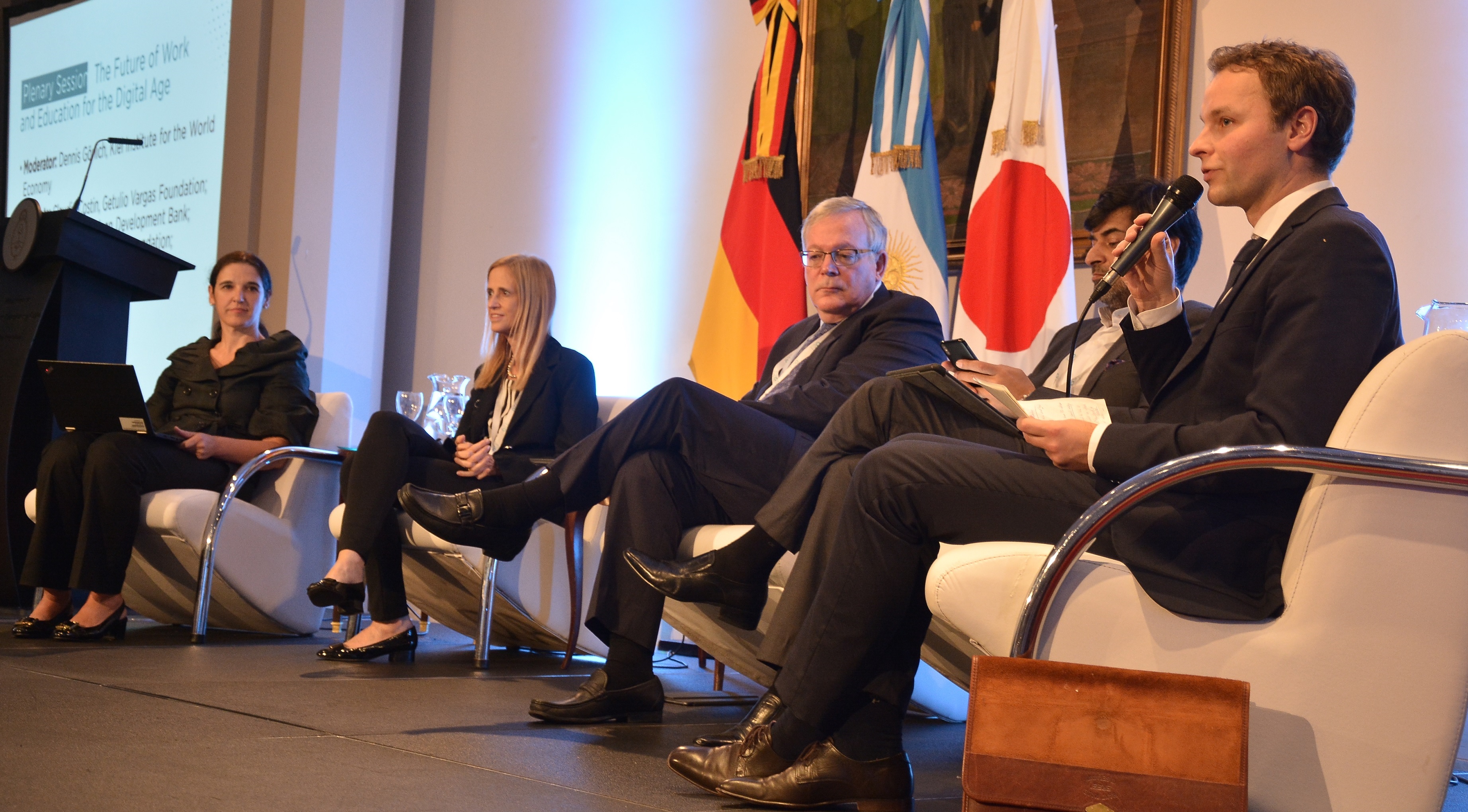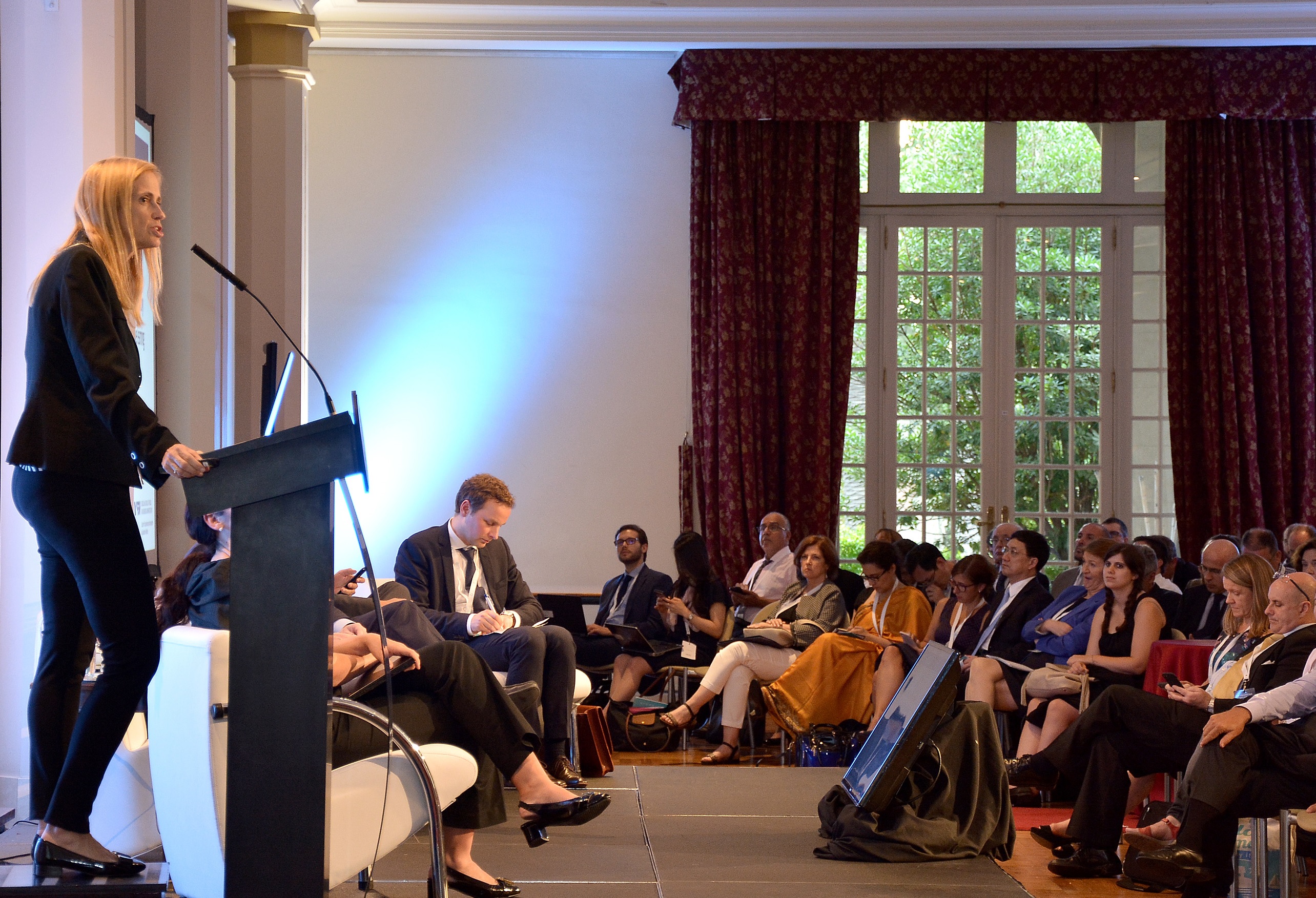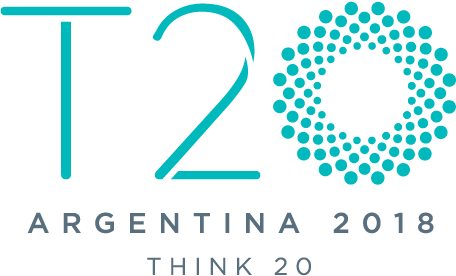There were four plenary sessions during the Think 20 seminar which covered food security and sustainable development, climate change, the future of work and education in the digital era and the future of politics.
The Inception Workshop: Vision and Strategies for 2018 took place on 1-2 February and was the first formal meeting for this cycle’s think tanks. In the event there were four plenary sessions in which international experts formed T20 Task Forces and debated a number of different topics.
The first was on Global Governance Issues in Food Security and Sustainable Agriculture and was moderated by Martín Piñeiro, Director of the Agricultural Committee at CARI and co-chair of the T20 Argentina 2018 “Food Security and Sustainable Agriculture” Task Force. The panelists who took part in the session were Jikun Huang, Professor and Director of the China Center for Agricultural Policy, Peking University and Task Force co-chair; Jamie Morrison, Senior Economist in the Trade and Markets Division at the Food and Agriculture Organization (FAO); Máximo Torero, Executive Director for Argentina, Bolivia, Chile, Peru, Paraguay and Uruguay at the World Bank Group; and Eugenio Díaz-Bonilla, Visiting Research Fellow and Head of the Latin American & Caribbean Program at IFPRI and co-chair of the Task Force.

The second was on The Future of Work and Education for the Digital Age and was moderated by Dennis Görlich, Managing Director of the Global Economic Symposium (GES), Kiel Institute for the World Economy (IfW) and co-chair of the Task Force. The panelists were Claudia Costin, Founder and Director of the Center for Excellence and Innovation in Education Policies at the Getulio Vargas Foundation; Laura Ripani, Lead Labor Markets Specialist at the Inter-American Development Bank; Blair Sheppard, Global Leader for Strategy and Leadership Development at PwC and Samir Saran, the Vice President of the Observer Research Foundation.
Another topic discussed at the event was the challenge of social cohesion in uncertain political scenarios. Imagining the way ahead and implications for global governance. The moderator for this session was Colin Bradford, Non-Resident Senior Fellow of the Global Economy and Development Program at Brookings and Director of the Brookings-CIGI Global Governance Reform project in the Global Economy and Development Program at the institute too. The panelists were Sergio Bitar, Non-Resident Senior Fellow and Project Director of Global Trends and Future Scenarios at the Inter-American Dialogue and President of Fundación por la Democracia; Ana María Mustapic a Professor at Torcuato Di Tella University; Julia Pomares, the Executive Director of CIPPEC; Dennis Snower, the President of the Kiel Institute for the World Economy (IfW) and co-chair of Task Force; and Richard Wike, the Director of Global Attitudes Research at the Pew Research Center.

The last plenary session covered Climate Action & Infrastructure for Development and was moderated by Miguel Lozupone, Director of Climate Change at the National Defense University (UNDEF). The panelists were Amar Bhattacharya, Senior Fellow of the Task Force; Magdy Martínez-Solimán, Assistant Secretary-General, Assistant Administrator and Director of the Bureau for Policy and Programme Support of the United Nations Development Programme (UNDP); Salvador Rueda, Director, Urban Ecology Agency of Barcelona; and Flore-Anne Messy, Head of the Financial Affairs Division at the Organization for Economic Cooperation and Development (OECD).
The objective of the seminar was for co-chairs and members from the ten Task Forces to meet for the first time. During the working sessions Task Forces were able to set out their agendas, establish priorities and begin to develop their research.
